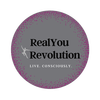 I never hesitate to admit that I probably initially got sober for the wrong reasons. I figured I could be even better at my job, and it would be easier to aim for perfection in all areas without the distraction of my drinking. One huge area that I wanted perfection in was my body. Its also worth mentioning that eating and weight disorders are directly related to addiction issues. My particular theory was if I quit drinking I would never wakeup hung-over, and therefore never skip the gym, or have anything other than a consistent, amazing workout. I figured I would eat nothing but leafy greens and power proteins and ease my way into a size 2 jeans in no time. So I’m sure you know what’s coming next…the whole…it didn’t play out that way….and it soooooo didn’t. In my first year of recovery I gained 10 pounds and continued to stuff my face with sugar and simple carbs. Before I quit drinking I prided myself on the fact that I NEVER liked sweets. I would go around touting, “Oh, I’m not a sweets person.” That’s just because I was consuming the sugar equivalent of two pints of Ben and Jerry’s Ice Cream every night in wine, vodka, or tequila. I was absolutely a sweets person but I didn’t realize it was all coming through my alcohol! If you are ready to cry your eyes out because Jan 1 was going to be the end of your drinking and the beginning of your new body, please read on! The good news is your body will be healing over time on levels you cannot begin to understand and in ways you never even thought of (adrenals, hormones, cortisol, serotonin, dopamine, etc.). The bad news is just like every other part of an addict’s world; it won’t ever seem soon enough for you. What I do know in dealing with addiction is that my body, mind, and spirit had a whole lot of healing to do, and still does. When I was finally so determined to get sober, everything else had to come last even if it meant a pint of cookie dough ice cream was a necessity instead of drinking. I am in my third year of recovery now and have finally been able to see with acute awareness how sugar and simple carbs make me feel horrible, not just immediately after consumption, but even for days after. I am also leveling out as far as truly understanding what type of workouts my body needs. I was a college athlete who just assumed I needed to continue pounding my body. What I have come to understand is that when I work out that hard I eat double the food to make up for it. After years of brutal self-talk and the “no pain no gain” approach, I am learning that my body thanks me when I use the softer approach of yoga, running, some weights, and lighter foods. When I take the time to meditate in the morning or even to sit and feel what my body needs, I am better able to address it accordingly. None of this was possible with alcohol in my life and not really even in super early recovery. For me, dealing with addiction and every other aspect of my life now is about doing the inside job first, and having the patience for the outside stuff to follow. The goal is to have a loving and healthy dialogue with my body instead of just pounding it into the pavement to look good. Something else that has helped in my understanding of addiction, is that typically when my addict mind thinks I am taking a shortcut, it ends up that path is actually the long and painful one. Choosing the slow and steady way to heal my body is finally paying off. RealYou Revolution, LLC. is New England's premier resource for cutting edge substance use disorder services. Advanced Intervention - Recovery Coaching - Family Support Services Case Management -Sober Companions - DUI/OUI Support Self Esteem Development - Anxiety Management Management
3 Comments
For an addict (I use this term to include alcoholic), feeling our feelings is a critical component to dealing with addiction and recovering from addiction. It is important to understand that someone who has been numbing their feelings for years is going to go through a phase in early recovery where they begin to feel feelings for the first time, and it’s typically a scary and unpleasant experience. I remember hitting about the four-month mark crying on the phone with a woman in the program telling her I would rather be trashed every day of my life then feel the way I did at that moment. Everything I had avoided dealing with was coming out of my cells, pains and struggles I had stuffed down for over 15 years.
Another important piece in understanding addiction is that the addict essentially stops growing emotionally around the time they first started using drugs and/or alcohol. For many of us the path started with pot or drugs as early as 12 or 13. This applies to anyone and everyone recovering from addiction whether 15 or 50. So recognize that now you have this person who has stopped the addictive behaviors but has started to have some uncomfortable feelings come up, who has the ability to deal with such issues on the same level as a teenager or preteen. This is why as many support systems as we can put in place are critical to the recovery process. Meetings, sober peers, therapists, recovery coaches, it doesn’t take one or two of these but ALL of these to increase the chances of success and long-term sobriety or the ability to bounce back quickly from a slip. Even after a significant amount of time in recovery, having feelings come up is risky. The addict wants to instantly “fix” the feelings and have control over numbing them or making them go away. So aside from the initial support systems a person must develop the proper coping skills that work for him or her. This even applies to physical feelings… I know every time I got sick in early recovery I wanted to drink because in the end that was what I did to feel better. A person cannot simply be told what works for them, they have to learn to develop and understand these coping mechanisms as they see fit for themselves. The key to feeling negative feelings is not to sit in the pain to sulk and stay depressed; it is to process through these feelings until they have left us. Taking a line from the wonderful Pema Chodron: “ The best thing you can do is learn how to fail really well, to hold the pain of things happening that you really don’t want to be happening … to experience the rawness of vulnerability … and to know the experience of when something terrible happens it means an opportunity for you to evolve into a better place, a new experience”. In the end, life happens; we must all understand that moments and feelings pass, yes, both the bad and the good. The beauty of life in recovery is being able to recognize this, be in moment, and ride the wave. RealYou Revolution, LLC. is New England's premier resource for cutting edge substance use disorder services. Advanced Intervention - Sober Companions - Recovery Coaches - Family Support Services - Case Management -DUI/OUI Support - Anger Management Self Esteem Development - Anxiety Management  One of the biggest mistakes I see people make when their son, daughter, spouse, parent, etc. is in treatment for addictive behaviors is forget about the work they need to do on themselves. It is very easy to get caught up in the drama of what to say when Aunt Joan asks where Suzie is or why brother Bill is blaming his parents for letting his sister’s problem get so bad. But here is the reality, none of this actually matters and it is completely counterproductive to the family getting well. We can only control what we can control and if we want to be supportive to the family member dealing with addiction we need to do all of the work we possibly can on ourselves until they return and then beyond. This includes reading books on understanding addiction, seeking out family counseling and coaching (ideally not to be combined), attending appropriate support groups, and being able to get brutally honest with ourselves. “Suzie” has just committed to going to treatment…typically THE single most courageous and profound decision someone can have on their life and a family legacy. The rest of the family needs to do some of the same work. If you want to understand what your loved one is dealing with, try giving up one of your crutches for a week, be it sugar, exercise, etc. Journal on your feelings and emotions during this period and reflect on the idea of someone telling you this decision has to be permanent. Then go into a candy shop where everyone is promoting the use of sugar (as our society promotes the use and abuse of alcohol) and acknowledge your resolve after the fact. Scary, isn’t it? Overwhelming? This is just a tiny snapshot of what your loved one is dealing with and will continue to work through when they return home. There is a lot of commitment that has to go into getting well. My question to families is if you can’t even read the 3 books recommended and commit to the necessary support groups and assistance twice a week, how do you expect your loved on to do it every day? And my response to that is you can’t! RealYou Revolution, LLC. is New England's premier resource for cutting edge substance use disorder services. Advanced Intervention - Sober Companions - Recovery Coaches - Family Support Services - Case Management -DUI/OUI Support - Anger Management Assistance - Food Addiction -Self Esteem Development - Anxiety Management Regardless of how much information we have on understanding addiction, some people seem to feel safer remaining in a state of denial. This makes sense because not having to change is EASY! As a recovery coach working with both addicts and their loved ones, I like clients to be armed with as much scientific information as possible leaving less room for opinion. Loved ones are constantly haunted with the question of how to stop addiction. Although it does not fix the problem, we do have plenty of information today on addictive behaviors and why people can’t just STOP drinking, drugging, or even eating. This fascinating explanation of a chemical in our brain called THIQ and how it works in the mind of an addict vs. someone without addictive behaviors may just make you feel some sanity today about why you can’t FIX your loved one or why you can’t get well on your own!
Could the end of heroin prohibition and criminalization be one of the solutions to combating drug abuse and saving thousands of lives? There is staggering evidence that throwing addicts in jail without focusing on treatment is only exacerbating the current epidemic. But what happens when our own law enforcement officers are so disturbed by what’s going on day in and day out that they too are actually pushing towards a more compassionate approach to understanding addiction and getting people well? You get fascinating, spot-on editorials like this one by former New Jersey State Police Officer Jack Cole.
When I was in treatment we had to write a letter to the people we loved most dearly as if we had relapsed. Since I don’t have children yet my nieces and nephews were a no brainer. This letter is what sealed the deal on the life I was committed to living and the changes I had to make no matter what. Please share. I hope it helps you in whatever you are struggling with today.
Dear Lily, Macie, Hunter and Alexa: I am sorry that I will not be there for you when you need me. I won’t be there for you on the days you just need someone to talk to. When you are hurting so bad and feel like you have no one, you won’t have me either. The sad truth is that Auntie Dani loves you guys so much but she just needed to always feel good instantly so she chose alcohol and a life of listening to her ego over loving you and herself and everything and everyone that ever meant anything to her. I am sorry that you may think you are less important to me because I chose these things over you. I want you to know that I love you all so much. You mean the world to me. I would do anything for you, almost anything, but I am sorry I can’t stop drinking. I wanted to be such a good example to all of you of the way to really live life…to find true happiness, love yourself and others, to be honest and caring, and maybe most importantly, peaceful inside. This is all I want for you but I couldn’t get it. I wanted you to see that enjoying the simplest things in life is what living really is. When I think of the four of you my heart and my eyes light up. I am so sorry that I failed you. My hope is that one day you will be able to learn these things on your own and live a life of true peace and happiness. I am sorry that I chose denial, instant gratification and superficiality over being a living example to all of you. Always, Auntie Dani I wanted to share this very basic (but very awesome!) article on understanding addiction and how it creeps up on so many unsuspecting people. No one wants to admit they are a drug addict or an alcoholic. I realized a long time ago that these labels, and the confusion about what they meant to me, were preventing me from being brutally honest with myself and getting the help I needed. There are so many types of addiction that this article could be talking about. If you or someone you know is exhibiting signs of alcoholism or is dealing with drug abuse or other addictive behaviors, call us today at 774-329-4393.
Understanding How Drug Addicts Think: The Progression of Addiction |
about the master coachDanielle, the Founder & Master Coach of RealYou Revolution, is a woman in long term recovery with a passion for helping others overcome their own personal demons – whatever they may be.
|
Location |
|




 RSS Feed
RSS Feed